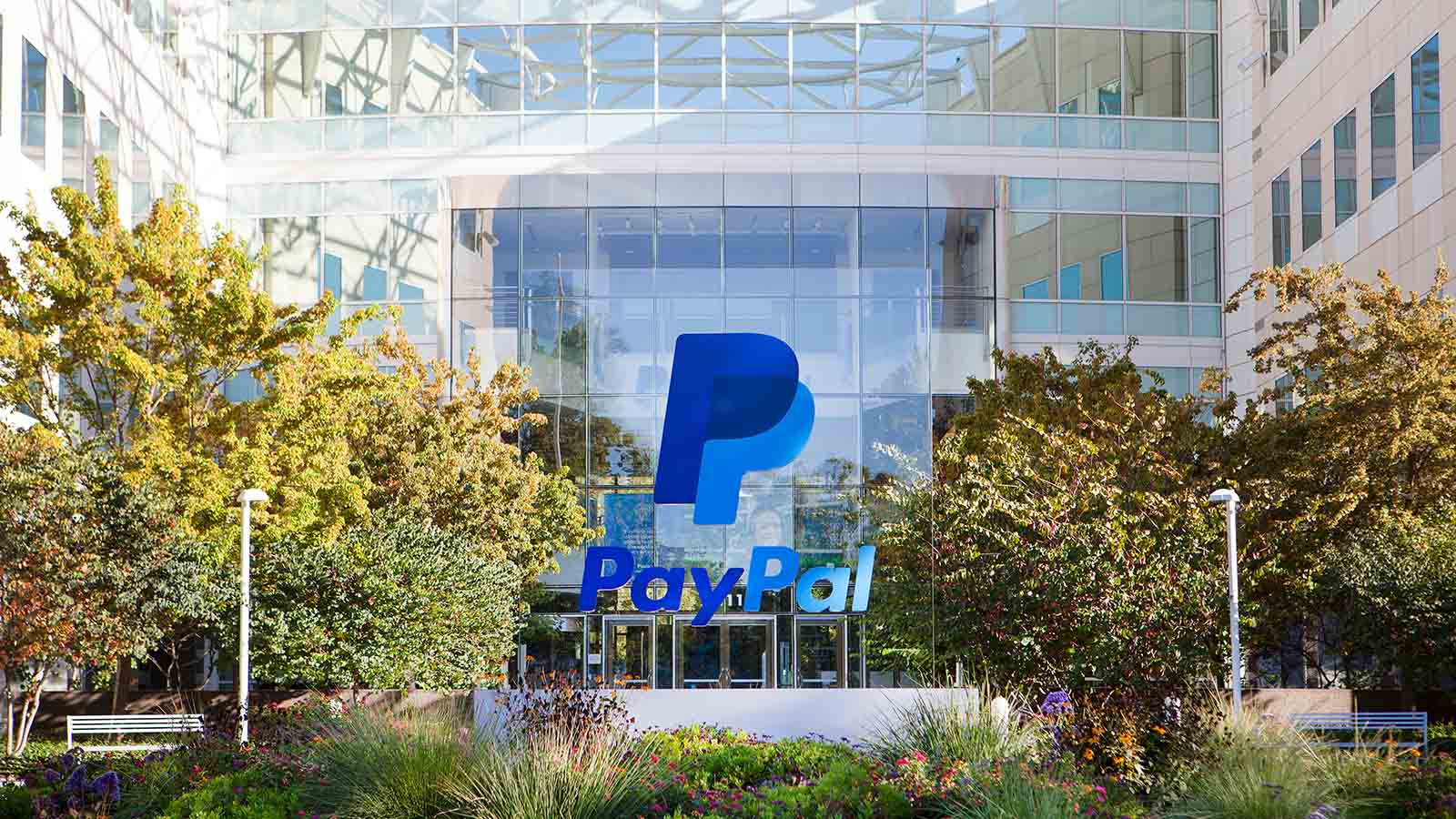Earnings Look Good Enough for PayPal Stock
Investors shrugged at PayPal's fourth-quarter report, but it actually bodes well for PayPal stock
PayPal Holdings (NASDAQ:PYPL) released its earnings on Wednesday afternoon — and investors don’t seem impressed by the results, as PayPal stock is little changed since then.

The response is somewhat logical. PayPal’s Q4 numbers did beat analysts’ average estimates, but not by much; investors likely were looking for more fireworks. The company’s outlook for the first quarter and full-year 2020, at least based on the headline numbers, appear somewhat soft. One-time factors played a role, but the Q4 results don’t seem like a massive beat that has materially changed the company’s outlook.
But that’s fine because its outlook didn’t need to change. PayPal remains one of the better growth stories in the market, and PayPal stock has one of the more attractive valuations among growth names. Its Q4 earnings and 2020 guidance were more than enough to keep the company’s outlook intact. In the wake of the results, PYPL stock is still intriguing for medium-term and long-term investors.
The Headline Results
The lukewarm reaction to PayPal’s earnings does make some sense because its Q4 results and 2020 guidance were essentially in-line with expectations. Its revenue increased 18% year-over-year in Q4, excluding currency fluctuations, as its transaction payment volume jumped 22%, excluding currency fluctuations.
Its bottom-line performance was even better: as its management noted, the 2.04 percentage point YoY increase in its operating margin was its biggest such expansion since PayPal split from eBay (NASDAQ:EBAY) in 2015.
But the growth was mostly expected: its revenue increase was within 0.4 percentage points of the average analyst estimate. A 3 cent beat relative to average earnings per share expectations is nothing new for PayPal, and it’s not terribly surprising in an era in which tech companies almost always beat mean bottom-line estimates.
Post-earnings headlines indicate that the company’s guidance gave investors some pause. At first glance, PayPal’s outlook does appear to be disappointing. Its Q1 revenue and earnings guidance came in below analysts’ average estimate. Full-year EPS guidance, excluding some items, of $3.39-$3.46 fell shy of the $3.49 mean estimate ahead of the release.
The company’s outlook is better than those headline numbers suggest, however. And its guidance more than enough to keep the company’s attractive long-term outlook intact.
Understanding PayPal’s 2020 Guidance
It appears that the difference between analysts’ expectations and PayPal’s numbers come down to acquisitions. PayPal noted that acquisitions will reduce its 2020 EPS by 8 cents to 10 cents.
PayPal also changed its criteria for adjusted earnings; in 2020, the company will exclude the impact of gains and losses on its investments from its adjusted earnings. In 2019, gains from its investments boosted its EPS by 14 cents. But investments will have no impact on its reported adjusted earnings this year.
So PayPal’s bottom-line growth is much stronger than its headline numbers suggest. Its 2020 adjusted EPS guidance of $3.39-$3.46, against the $3.10 it reported in 2019, suggests a roughly 9%-11% YoY increase. But excluding the effect of acquisitions and 2019 investment gains, PYPL actually expects its EPS to jump 18%-20% this year.
The extent to which Street estimates incorporate the company’s acquisitions or potential gains or losses on its investments is unclear. At minimum, PayPal’s guidance isn’t 100% comparable to analysts’ estimates. The impact of acquisitions alone accounts for the difference between PayPal’s guidance and analysts’ average estimates. That, in turn, suggests that PayPal’s earnings growth remains nicely on track.
The Case for PayPal Stock
Given the fact that PayPal’s guidance actually looks attractive, PayPal stock looks appealing. The shares trade at about 34 times the midpoint of the company’s 2020’s EPS guidance. That’s a reasonably high multiple, but not when the company’s profits are growing at an 18%-plus clip, particularly in this market.
Mastercard (NYSE:MA) is trading at a higher multiple to its expected 2020 EPS and its growth rate is lower. Visa’s (NYSE:V) price-earnings ratio is nearly 30. Square (NYSE:SQ) does have more growth potential, but its valuation is much higher than that of PayPal stock.
On a relative basis, then, being long PYPL stock makes sense at these levels, particularly with the shares trading sideways since June.
The shares’ valuation alone makes them attractive. A P/E ratio of 33 isn’t cheap, but PayPal reiterated that it expects to generate 20% annual EPS growth for some time to come. That growth is more than enough to allow the company to grow into its current valuation — and beyond.
Moreover, the company has additional opportunities in China and other foreign countries, and its Venmo business can continue to grow. Its loss of revenue from eBay is a concern, but since eBay accounted for only 14% of its total sales, the impact is more than manageable. PayPal should be able to grow despite that development.
PayPal’s strong outlook is what makes PYPL attractive — and its outlook wasn’t changed by the Q4 report.
As of this writing, Vince Martin has no positions in any securities mentioned.